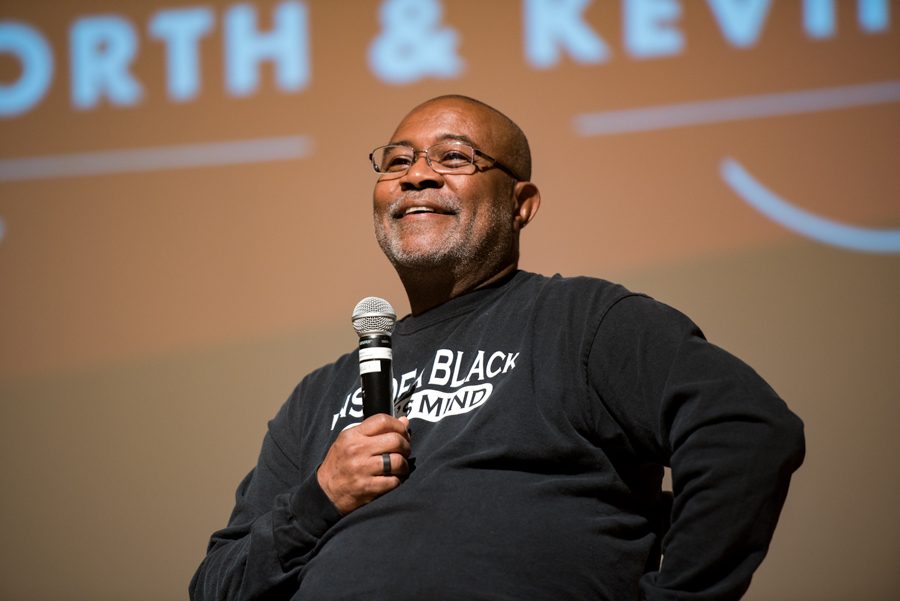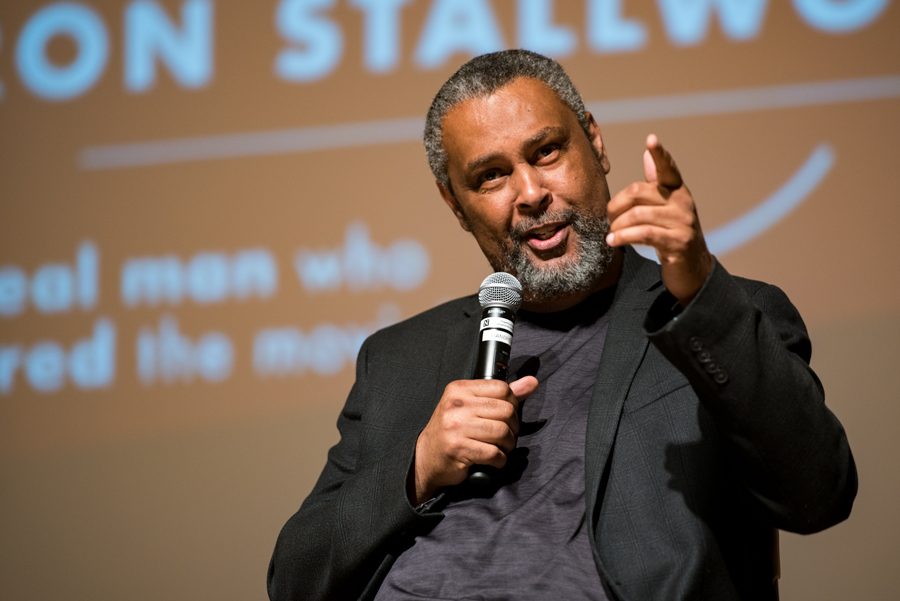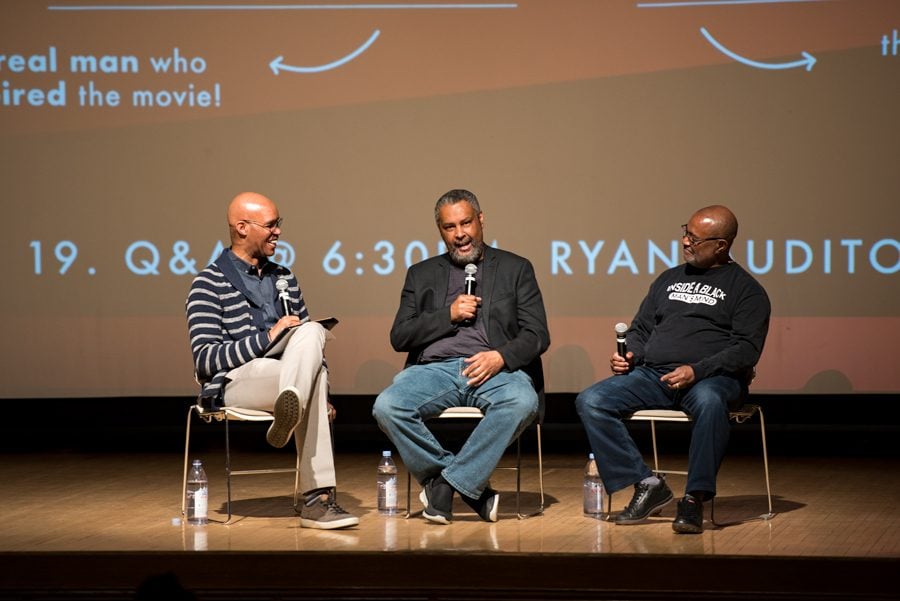Scriptwriting, politics and race discussed at BlacKkKlansman Q&A
Evan Robinson-Johnson/Daily Senior Staffer
Medill interim Dean Charles Whitaker (left), Kevin Willmott (middle) and Ron Stallsworth (right) speak in the Ryan Family Auditorium. The film and memoir “BlacKkKlansman” are based on Stallworth’s own experiences.
May 20, 2019
“BlacKkKlansman” screenwriter Kevin Willmott and Ron Stallworth, the retired police officer the film is based on, discussed the Academy award-winning film on Sunday. The panel followed a screening of the movie in the Ryan Family Auditorium.
The panel, moderated by Charles Whitaker, the interim dean of the Medill School of Journalism, Media, Integrated Marketing Communications, was organized by A&O Productions and the Contemporary Thought Speaker Series.
Both the film and the memoir center on a black police officer — Stallworth himself, portrayed by John David Washington in the film — infiltrating the Ku Klux Klan. Posing as a fellow white supremacist, Stallworth spoke to Klan members and leaders, including then-Grand Wizard of the Ku Klux Klan David Duke, on the phone — while a white officer posed as Stallworth for in-person meetings.
Willmott detailed his journey from activist to screenwriter and how he incorporated his personal experiences with race into his films.

Screenwriter Kevin Willmott laughs as Ron Stallworth relates his conversations with Grand Wizard David Duke, who is apparently a big Spike Lee fan.
“When you put a face on someone calling you The Big N, it’s a different thing,” Willmott said. “That experience is a great thing for a writer,” said Willmott.
He said his work on previous films, “Ninth Street” and “C.S.A.: The Confederate States of America,” led him to eventually meet Spike Lee and write “BlacKkKlansman.”
Stallworth said he considered Wilmott’s treatment of the script quite true to life.
“Having your life told in a motion picture is beyond description,” Stallworth said.“There were tears in my eyes, especially at the end.”
Stallworth also considered the racial politics of his experience and film. Explaining his time as a police officer in Colorado Springs, he said people forgot he was a black man and that the black community even called him “a traitor.”

Former Police Officer Ron Stallsworth listens to a student’s question about the real world obstacles he faced in the film. The surprising answer: bureaucracy, not race.
In a Twitter essay posted August 2018, “Sorry to Bother You” director Boots Riley criticized the film for portraying the police too positively, calling Stallsworth “the villain.”
Stallsworth defended the film against this criticism. He said police work is “an honorable position when done right” and the protagonist of the movie does much to improve his community.
When asked about Duke’s recent attempt at a comeback — during the run-up to the 2016 presidential election, the former Grand Wizard re-entered the public sphere — Stallworth cautioned the world against the dangers of “cordial” white supremacists.
“White supremacists don’t want to engage you,” Stallworth said.
He said Duke would change the subject away from white supremacy as soon as his arguments started to weaken, and asked the audience to be rhetorically diligent when facing hate groups.
The panel reiterated that American culture must continue to confront the existence of white supremacy and other hate groups, echoing back to the 2017 white supremacist rally and subsequent counter-protest in Charlottesville, Virginia.
“Heather Heyer (who died in Charlottesville) was killed because people refuse to take hate seriously in this country,” Willmott concluded.
Email: spgr@u.northwestern.edu
Twitter: @rubanicdefeat



